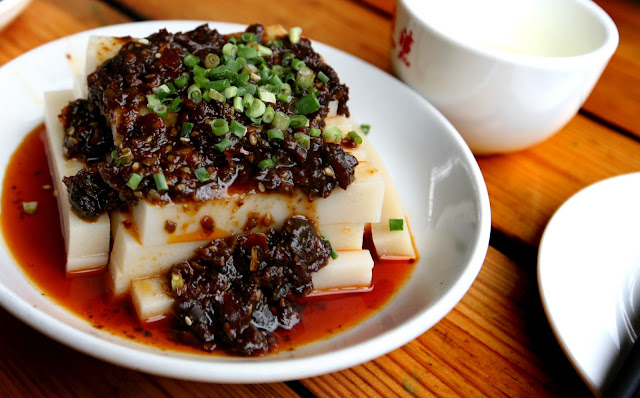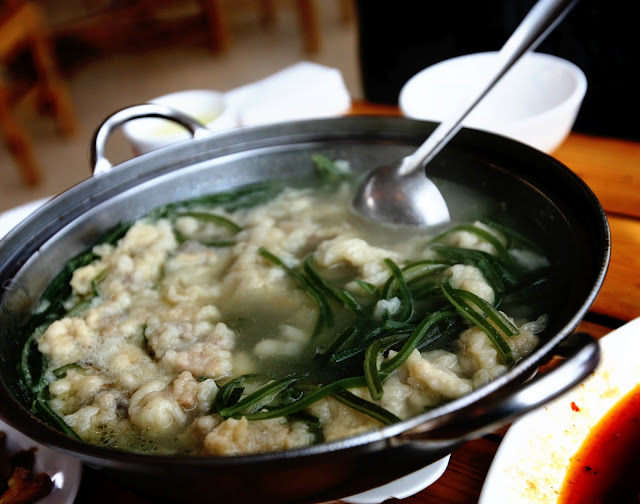As an American living
abroad, there are times when you’re with a group of local friends who are looking
forward to eating a favorite food that you, the foreigner, have never eaten. They’re
aware that you’ve never eaten it and so out of a hospitality-driven kindness
they’ll often pre-emptively excuse you from eating the dish.
Like last week when my teacher pointed at the menu and told our luncheon host that, “She
doesn’t eat those, but she’ll be ok with the rest of us eating them.”
Sometimes I think my
teachers forget that I understand Chinese. But the shocking reality is that even
when it's Chinese that has been smothered with the local dialect I still manage to understand. Or at least I understand a good chunk of it. So when my teacher used the word
“she,” I already knew the she was me. So I asked, “What don’t I eat?”
I could see her think it
through… Wait, how does she know I’m talking about her? Oh, right, she speaks
Chinese. But how can she speak Chinese? Oh, right, I’m her teacher. With the
internal dialogue complete, she finally told me, in Chinese, that the food up for
consideration was chicken feet.
Chicken feet... It's normal to see people here walking down the street gnawing the hell out of these knobby, scratchy
appendages with big goofy smiles on their faces. The smile is probably just the most advantageous
mouth position for ripping tiny ligaments from tiny bones, but that doesn’t
mean they’re not enjoying it. In fact,
from what my teacher tells me, chicken feet are the most popular snack for men
who are out drinking and women who are at home watching TV.
So, would I eat chicken feet? That’s a question we all saw coming.
After ramming myself into the middle of the conversation, I certainly deserved it. And actually, it was kind of my point.
So, would I eat chicken feet? That’s a question we all saw coming.
After ramming myself into the middle of the conversation, I certainly deserved it. And actually, it was kind of my point.
Truth is that in the U.S. I probably wouldn’t eat chicken feet. But here?
This is where my China eating plan comes into play. The plan is as follows: If I’m with someone I trust, and they’re eating something that, although perhaps a bit different from a western perspective, tastes good to them, then I’m going to try eating it too.
And that's how I ended up with a chicken foot in my mouth.
It’s also how I discovered that the bone soup (aka tempura’ed pig bone chunks with remainders of meat still clinging to them floating in broth along with seaweed) was as delicious as the chicken feet. And that the hand-torn noodles with small rabbit are amazing.
So then yes, I’d have to
agree with my hosts: chicken feet are good. I expected they'd be tasteless and
annoying, but instead they were a flavorful and challenging eating puzzle. It’s
labor intensive but you’re mostly eating skin, and the people in the kitchen made sure that
the skin tastes good.
I just said skin tastes good. And not just any skin -- the skin from a chicken’s foot.
I just said skin tastes good. And not just any skin -- the skin from a chicken’s foot.
I guess it’s official: my China eating plan is working.



















